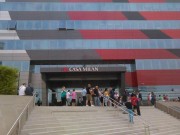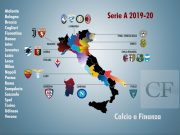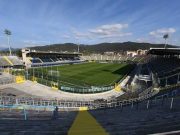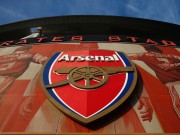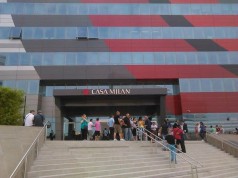For the first time in Italy, Juventus celebrated its sixth consecutive Serie A title. Having also won the Coppa Italia three consecutive times (breaking another record) Juventus also obtained its third double (Championship – Italian Cup).
Let’s investigate the reasons why in the last few years Juventus has won everything domestically.
1 – It’s the Best Team:
It seems to be obvious but it’s not; Juventus is the best team in Italy. The players are mentally strong and qualitatively top. The management, led by Andrea Agnelli, reshaped a team that, for a while, was underperforming. Giuseppe Marotta, Pavel Nedved, Fabio Paratici, and Chief Financial Officer Aldo Mazzia did a great job in developing new economic strategies that boosted the power of the team.

In the last five years, Juventus inflicted a 58-point gap to the second team in the standings. It won 73% of the games, losing just 8% of them totalling a positive goal differential of 255. Even its Champions League performances sharply improved. The bianconeri reached the final match two times in the last three years.
2- It’s the Richest Club in Italy
The virtuous circle that Juventus’ management put in place (victories-revenues-investments-victories) has been really beneficial. Nowadays, the bianconeri are in the Elite of European football also consolidating its economic efficiency in Italy.
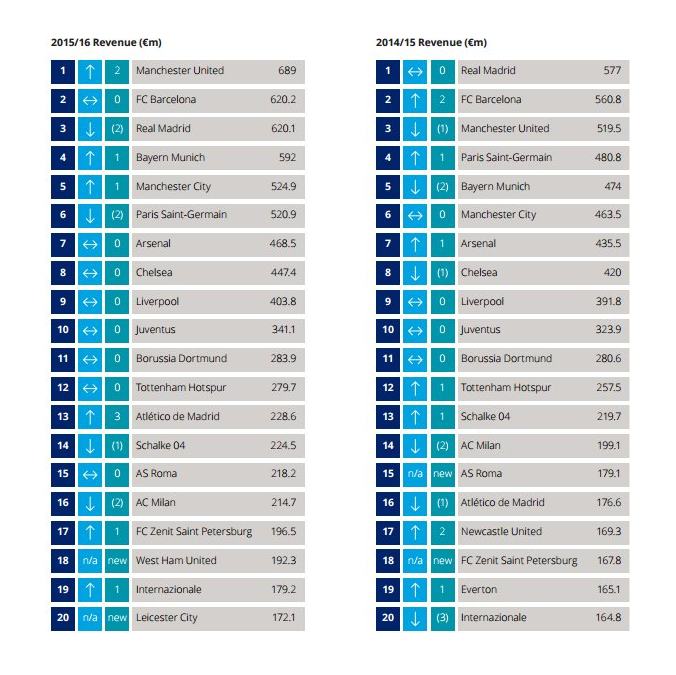
In the past five years, Juventus’ revenues increased from less than 200 million to around 341 million. This value is also increasing year after year. Not counting the revenue from player transfers, thanks to the proficient path in the Champions League, this season Agnelli’s club’s revenues should surpass 400 million (getting to more than 500 mln with player transfer revenue included). In this count, we are including Paul Pogba’s monster deal sealed with Manchester United last summer.

Considering the revenues from player management (player transfers and loans cashed in), Roma, AC Milan, Inter, and Napoli are very far behind the Bianconeri.
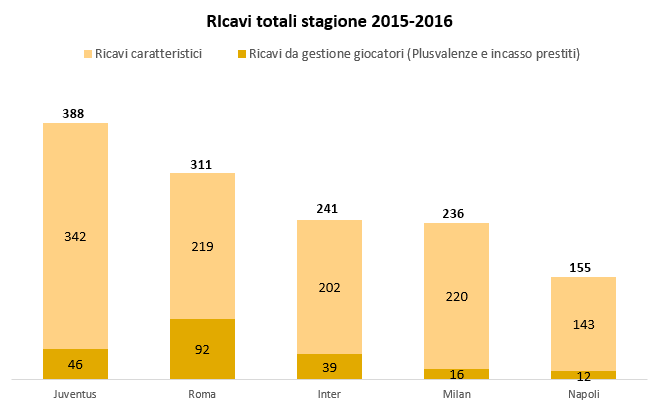
Champions League TV rights definitely had a major role in Juventus’ coffers. Sporting director Marotta had the possibility to purchase the best players on the market while also weakening Juventus’ main competitors Roma and Napoli by closing deals for Pjanic and Higuain, respectively. The club was able to offer better salaries to these stars. This is the reason why in the top 10 of the highest salaries in Serie A there are eight Juventus footballers, with Higuain leading the group.
In the last five years, Milan, Roma, and Napoli had totalled cumulative negative revenue for 280 million. In short, every year Juventus starts the season from a position of strength and can also purchase expensive players on its roster. Its competitors are not able to do so. This is due to the great economic efficiency that the management was able to implement.
3 – The Continuous Absence of the Teams of Milan
There is an anomaly in Italian football. In the last few years, AC Milan and Inter disappeared (performance wise). Two of the most winning clubs in Serie A history had to face financial constraints giving up their best players. However, these were also the clubs that historically competed for the title against Juventus and that were involved in the European Cups.

Milano 20-11-2016 Stadio Giuseppe Meazza – Football Calcio Serie A Milan – Inter Foto Giuseppe Celeste / Insidefoto
In the last decade, Milan and Inter reshaped their way to do business trying to base their financial models on sustainability and player trading. However, a lack of a well-structured managerial structure caused a deep loss in efficiency on and off the pitch.
4 – The Antagonists, Roma and Napoli
The crisis of the two teams of Milan apparently modified the Italian football geography. In the last few years, Roma and Napoli unsuccessfully challenged Juventus’ dominance in Italy. However, the historical economic and traditional difference between the Giallorossi, the Partenopei and the Bianconeri is huge.
As we had previously highlighted, in the 2015-16 season, Juventus collected around 342 million in revenues. This is almost the same combined amount collected by Roma (219 mln) and Napoli (143 mln).

Napoli 15-10-2016 Stadio San Paolo
Campionato Serie A Napoli – AS Roma
Foto Cesare Purini / Insidefoto
Juventus’ strategy to “steal” the best players from its competitors (Higuain and Pjanic) enlarged the gap between the Bianconeri and the clubs of Pallotta and De Laurentiis. This is the same strategy that Bayern Munich implemented over the years in Germany.
5- Mechanisms of UEFA’s repartition of revenues
The distribution of Champions League prizes is the perfect paradigm of modern football (the activation of the virtuous circle: victories = more revenues = more victories).
In the last five years, Juventus is the Italian club who cashed in the most Champions League prizes (practically the same amount collected by Roma, Napoli, and Milan combined).
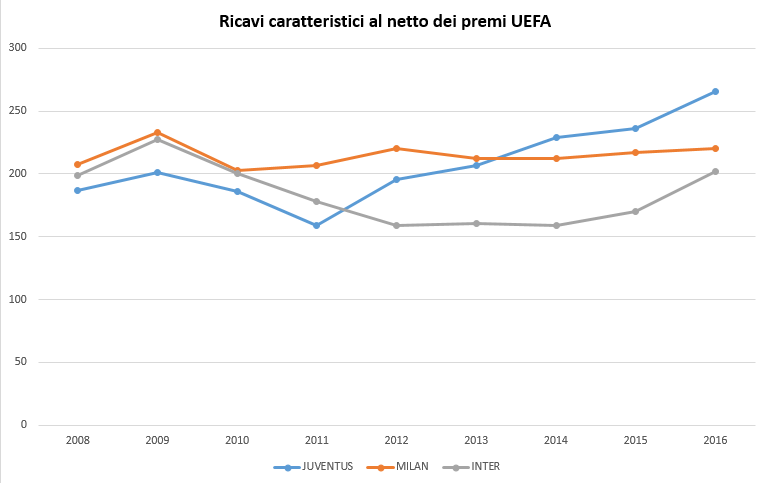
In the current season, thanks to UEFA’s sponsor and TV rights contract renewal, Juventus could cash in the record amount of 113 million in revenue.

Since the 2012-13 season, the Bianconeri received from UEFA approximately 274 million, an average of around 68.4 mln per year. If we consider the 2016-17 season prizes, the average would increase to 76.3 million per year (in the case of Juventus’ defeat against Real Madrid in Cardiff’s final) up to an average of 77.4 million (if Allegri’s boys will triumph).
In addition to UEFA’s prizes, the participation in the Champions League assures a massive media exposure, revenue from ticket sales, a major appeal for sponsors, and the possibility to attract the best footballers because they would be able to play in the most important competition for clubs.
6- A lower competitivity in Serie A
The fact that Serie A is not a first-tier league is obvious. Nowadays, the best players in the world are not willing to play in Italy anymore like they used to. Once upon a time, even mid level Italian clubs had important stars on their rosters.
In the short term, a lower level league puts the best clubs in an advantageous situation (obviously Juventus is the main beneficiary). However, in the long run, this situation could negatively affect Italian football as a whole.
Although Juventus’ superiority should be credited to the manager and the quality of its players, Agnelli knows that in the long run, this domination could not be beneficial anymore. This is the reason why the president, together with AC Milan’s and Inter’s managers, pushed UEFA to reinstate the previous Champions League’s format in which Italy could have four teams directly qualified for the major European club competition.
The next challenge will be to improve the Italian football league hoping that its managers will be able to increase its appeal.



